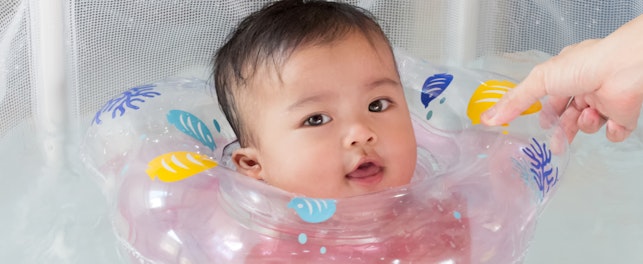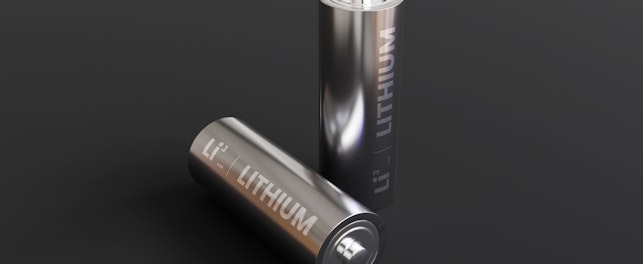Revisions to New York State’s law on toxic chemicals in children’s products include reorganizing the regulatory framework for the DEC to designate CoCs and HPCs, as well as establishing a children’s product safety council to make recommendations for HPCs.
In February 2020, New York State (NYS) approved A6296A (companion bill S501B) to add Title 9 ‘Toxic Chemicals in Children’s Products’ to Article 37 of its Environmental Conservation law. The new law, Chapter 756 of the laws of 2019, became effective in March 2020. That legislation was signed pursuant to a chapter agreement which, among other things, establishes a children’s product safety council and reorganizes the regulatory framework for the Department of Environmental Conservation (DEC) to designate chemicals of concern (CoCs) and high-priority chemicals (HPCs).
On April 3, 2020 the governor of NYS signed into law A9505B (companion bill S7505B). This act, in part, amends Title 9 to Article 37 of the Environmental Conservation Law in relation to toxic chemicals in children’s products. This amendment (Subpart AA of Part XX to A9505B) contains, inter alia, important revisions to the original law:
- Definition for ‘children’s product’ – a consumer product primarily intended for, made for or marketed for use by children aged 12 and under, such as apparel, baby products, bedding, car seats, furnishings, furniture, jewelry, novelty products, personal care products, school supplies, toys, and childcare articles to help a child with sucking or teething, to facilitate sleep, relaxation, or the feeding of a child
- Deleting the initial list of 103 entries for CoCs and references to DCs
- Directing the DEC to consider, at a minimum, the 77 entries listed in the amendment for promulgating a list of CoCs within two years of the effective date – the list will be reviewed periodically
- Designating 1) asbestos, 2) arsenic and arsenic compounds, including arsenic trioxide and dimethyl arsenic, 3) benzene, 4) cadmium (except toy coatings), 5) mercury and mercury compounds, including methyl mercury, 6) organohalogen flame retardants in upholstered bedding or furniture, and 7) tris(1,3-dichloro-2-propyl) phosphate (TDCPP) as HPCs – the list will be reviewed periodically
- Reporting requirements for children’s products containing a CoC or HPC at or above PQL within 12 months after these chemicals have been identified – an alternative threshold for the reporting of trace contaminants may be established
- Prohibiting children’s products containing intentionally added asbestos, benzene or TDCPP from January 1, 2023 – this does not apply to a) children’s products solely based on their containing an enclosed battery or enclosed electronic components, b) where state regulation on children’s products is preempted by federal law, c) where the presence of the chemical is as a trace contaminant, or d) the component of a children’s product is inaccessible
- Establishing a children’s product safety council to advise DEC on HPCs – the council to provide the first list of recommended HPCs to the DEC no later than one year from the initial meeting of the council and then to update the list annually thereafter
- Requiring manufacturers of children’s products containing an HPC to notify persons that offer the children’s product for sale or distribution that the product contains the chemical, and to provide information on its toxicity
- Directing the DEC to post information on children’s products containing CoCs or HPCs on its website
The language in the amended act is essentially identical to A9765 (companion bill S7735) as introduced by the NYS legislature in February 2020. This amendment became effective on the same date and same manner as Chapter 756 of the laws of 2019 (A6296A/S501B).
SGS is committed to providing information about development in regulations for consumer products as complimentary services. Through a global network of laboratories, SGS provides a wide range of services including physical/mechanical testing, analytical testing and consultancy work for technical and non-technical parameters applicable to a comprehensive range of consumer products. Please do not hesitate to contact us for further information.
For enquiries, please contact:
Hingwo Tsang
Global Information and Innovation Manager
t: (+852) 2774 7420
© SGS Group Management SA - 2020 - All rights reserved - SGS is a registered trademark of SGS Group Management SA. This is a publication of SGS, except for 3rd parties’ contents submitted or licensed for use by SGS. SGS neither endorses nor disapproves said 3rd parties contents. This publication is intended to provide technical information and shall not be considered an exhaustive treatment of any subject treated. It is strictly educational and does not replace any legal requirements or applicable regulations. It is not intended to constitute consulting or professional advice. The information contained herein is provided “as is” and SGS does not warrant that it will be error-free or will meet any particular criteria of performance or quality. Do not quote or refer any information herein without SGS’ prior written consent.



